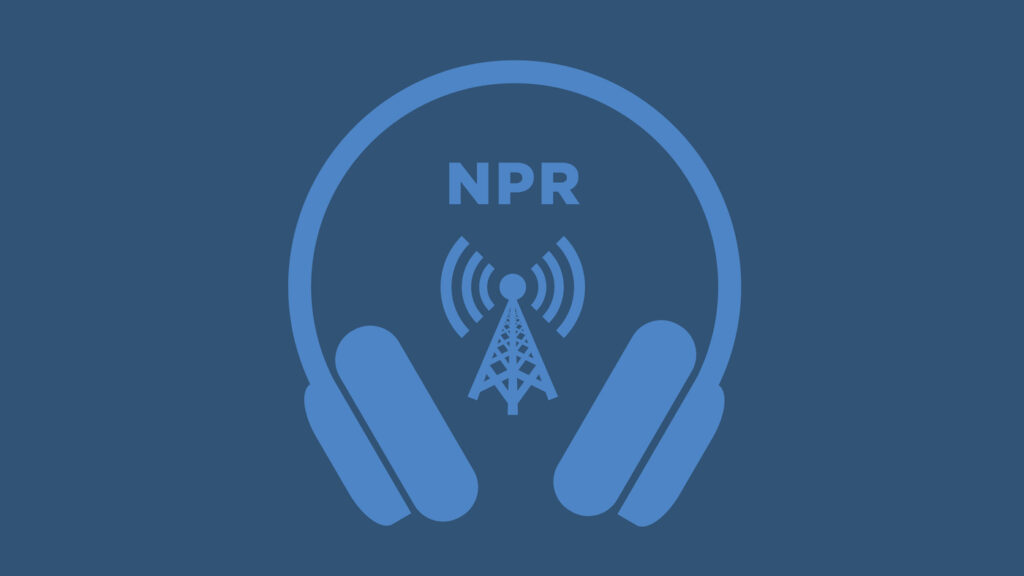International aid organizations are working to provide relief across Sudan. Mohanad El Belal, co-founder of Khartoum Aid Kitchens, shares how some local kitchens are stepping in to feed hungry civilians.
Danielle Kurtzleben, host:
The war in Sudan has left millions of civilians hungry and displaced. The United Nations says providing relief faces two major challenges: a lack of access due to intense fighting across the country, and insufficient funding for an effective humanitarian response. The United Nations says it needs about $2.7 billion, but the budget provides only 12 percent. Meanwhile, local grassroots organizations have stepped in to fill the gap.
Mohanad El Belal: My name is Mohanad El Belal. I am a British Sudanese national and co-founder of the Khartoum Aid Kitchen.
KURTZLEBEN: Back in March, El Belal called his cousin Yaseen Abdallah to check on him. Abdullah fled his hometown in the early months of the war and moved to a safer area in the neighboring city of Omdurman. Although his cousin fled the fighting, Elberal said there was another threat. Severe hunger and malnutrition are spreading.
EL BELAL: People have to look around and they realize, okay, we still have some savings. We can afford to eat, but they look at our neighbors who have no savings and say, instead of eating two meals, we eat one meal and give it to our neighbors. It’s a community-shared way of sustaining people.
KURTZLEBEN: People started running out of money very quickly, so they turned to small community kitchens, but the kitchens weren’t meeting the demand they were seeing.
EL BELAL: One of the ways kitchens are responding to this high demand is by adding water to stews so that they actually become flavored water.
KURTZLEBEN: El Belal knew that wasn’t going to solve the problem.
EL BELAL: It’s not just a lack of calories. This is also the nutritional content of food. There is a severe lack of protein in the diet, as the Sudanese diet obtains its protein from meat. For most people, this has become too much to bear.
KURTZLEBEN: So he came up with a solution – peanut butter.
EL BELAL: We decided the best way to remedy this was to add peanut butter to our lentil stew. For every 10 kilograms of lentils, we add 4 kilograms of peanut butter, increasing the caloric density of the stew by more than 100%.
KURTZLEBEN: The original goal was to feed 80 families in his cousin’s neighborhood, about 400 people. El Belal personally financed the operation. But as the threat of mass starvation and famine spread, he knew the operation could expand.
EL BELAL: As of June 13, we have 18 kitchens, 12 of which are directly operated and six of which are cooperative kitchens that we sponsor.
KURTZLEBEN: He teamed up with another Sudanese friend based in the UK to help raise money through GoFundMe, and they raised more than $300,000 for the Khartoum Aid Kitchen. Elberal said that while he’s encouraged by the efforts, he knows it’s not enough.
EL BELAL: I would say a lot of people who use our kitchens are still hungry. But what we’re trying to do is provide them with adequate nutrition so that they don’t become malnourished.
KUZLEBEN: He said the international community needs to step in.
Alberal: I think the whole world thinks what’s happening in Africa is inevitable, that kids are going to die no matter what. I think that if it were outside the African continent, the Sudanese people would show more unity. So what we’ve been trying to do at Khartoum Kitchen is highlight individual cases and make people understand that these are ordinary people, just like everywhere else, with their dreams and hopes and the things that happen to them, and they don’t deserve it.
KURTZLEBEN: That’s Mohanad El Belal. He is the co-founder of the Khartoum Aid Kitchen.
Copyright © 2024 NPR. all rights reserved. Please visit our Terms of Use and Permissions page at www.npr.org for more information.
NPR transcripts are created by NPR contractors under emergency deadlines. This article may not be in final form and may be updated or revised in the future. Accuracy and availability may vary. The authoritative record of NPR’s programming is the audio transcript.

